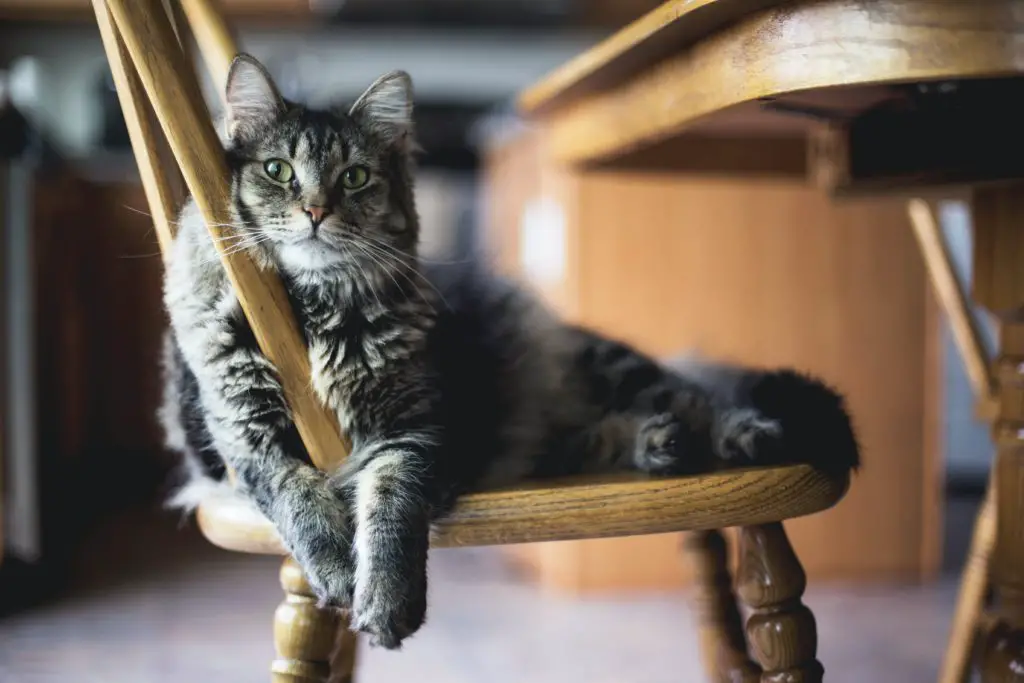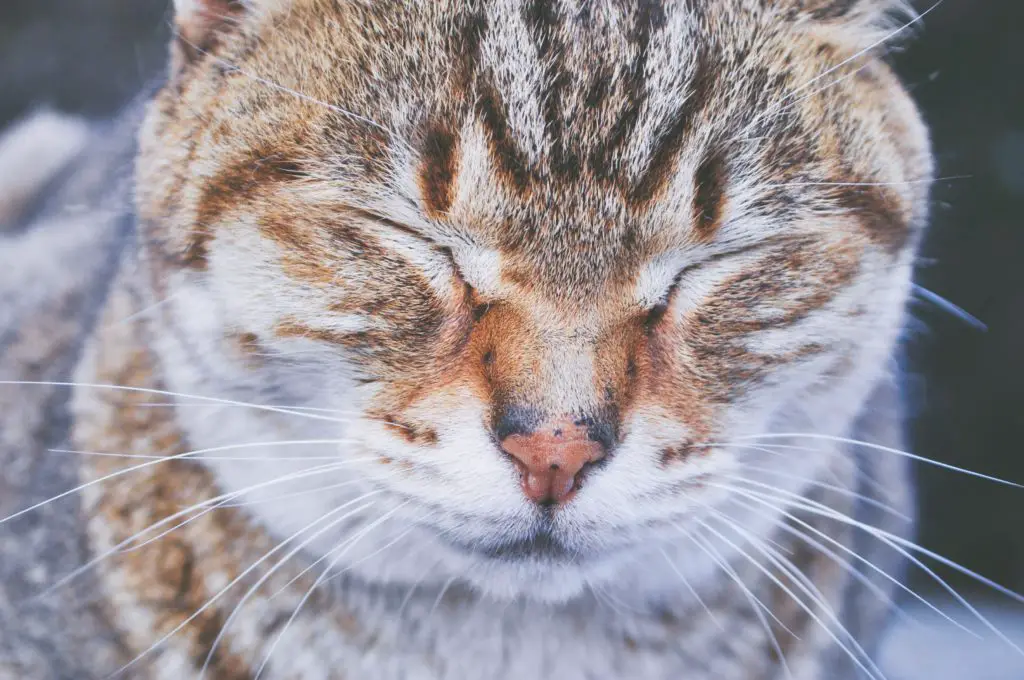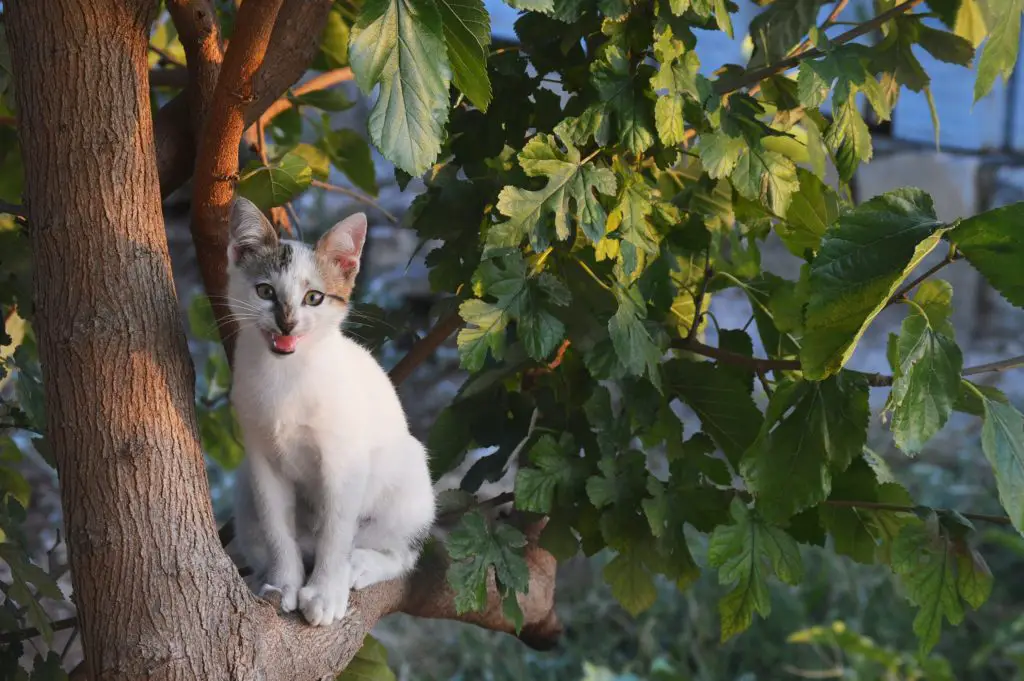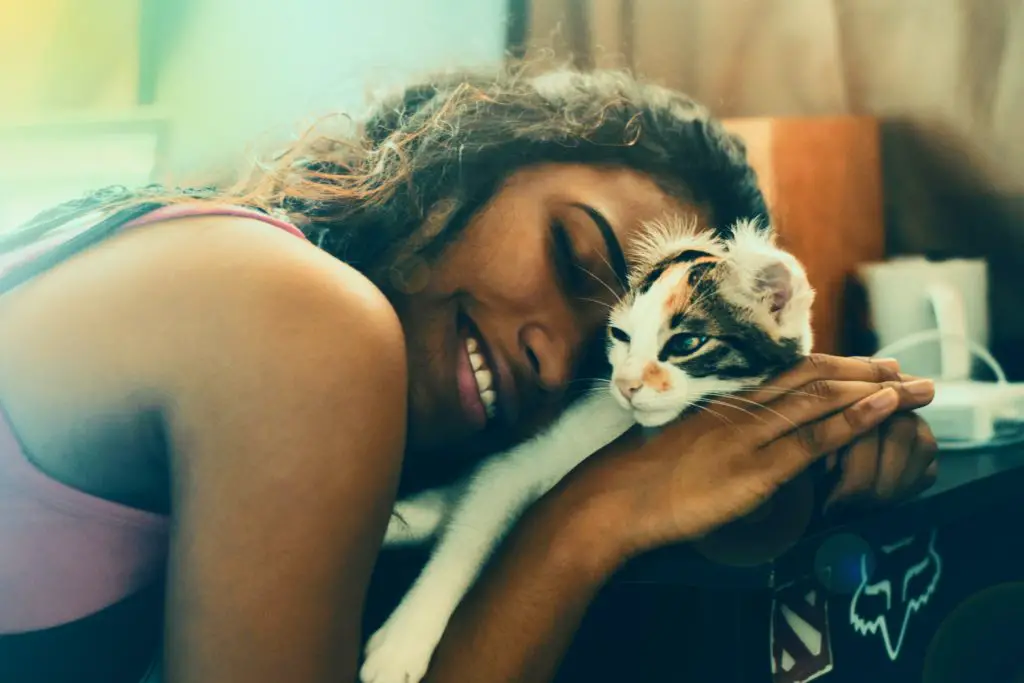Cats have a pretty good reputation for being clean animals. They can groom themselves with ease when healthy and will take their time to deal with the mess. So, it can be a very unpleasant surprise when we pick our cat up for a cuddle and are greeted with a foul odor.
Why does your cat smell like poop? It can happen due to a medical issue leading to excessive gas, diarrhea, or issues with the anal glands, the cat’s inability to groom themselves properly, leading to waste left behind or the cat has been in contact with feces, either from being outside or due to their litter tray.
So, what is the cause of this and what can you do to get them smelling fresh and clean again.
Why Does My Cat Smell Like Poop?
The bad news is that there is no definitive single answer and you need to do some investigation. The cause could be dietary if they are dealing with smelly diarrhea or gas, or down to another medical issue if they are struggling to clean themselves. Cats that are grooming themselves, but still seem a little smelly, could be picking up the odor from the environment. Locate the cause and figure out the most effective solution to eliminate the issue.
Essentially, we are looking at three common issues here. They are:
- a medical issue leading to excessive gas, diarrhea, or issues with the anal glands.
- the cat’s inability to groom themselves properly, leading to waste left behind.
- the cat has been in contact with feces, either from being outside or due to their litter tray.
- Medical issues could cause your cat to smell bad.
Cats that smell of poop around their back end could have some fecal matter in their fur. This may be due to diarrhea or other digestive issues. Excessive gas could also lead to a similar smell. Then there is the issue of infection or infection in the anal glands. This will smell different but is still unpleasant. Then some notice that their cat’s breath smells a little like poop, which isn’t great if they want to nose bump you. This could be a sign of disease and requires a medical check-up.
- Grooming issues could be to blame.
While we tend to see cats as clean creatures of habit, regularly licking themselves, this isn’t always the case. Young cats can struggle with effective grooming as their mother would do this at first and then teach them. Very young kittens may need help. On the other end of the scale, there are older cats that cannot reach and do this because of arthritis, other pain conditions, or a decline in flexibility.
- The smell could come from contact with feces in the immediate environment.
Then there is the fact that it might not be coming from your cat directly. The smell may be from feces transferred onto their fur from their environment. For example, they may have accidentally come into contact with some of your dogs that recently pooped in the yard or they were around as a diaper was changed. Or, the poop could come from their litter box if they’ve made repeated visits to a full tray. So make sure you keep it clean.

How Do I Get My Cat to Stop Smelling Like Poo?
It is important to not only determine the likely cause of the issue but to also find a way to improve the situation. Your best approach will depend on the cause. Also, don’t forget that issues here aren’t mutually exclusive. Your cat could have gas problems and too much exposure to feces. They could experience grooming issues and end up with problems with their anal glands.
Consider the following and see if they can help.
- Does your cat have an infection or impaction around the anal glands that needs medical intervention?
If you are concerned about sudden changes in smell or any signs of ill health in your cat, always go and talk to a vet. They can run tests to see if there is anything wrong with the digestive system or anal glands.
- Is your cat’s diet causing an upset stomach or too much gas?
Gassiness, loose stools, diarrhea, and other issues could be the result of your cat’s diet. There may be something that they have an intolerance to, or a nutrient lacking in their diet. Don’t make any sudden changes, as this could worsen sensitive stomachs. Instead, consult with a vet about eliminating one possible cause at a time.
- Is your cat overweight and in need of a diet to improve its flexibility and reach?
Alternatively, your cat’s diet could be far too rich in fats and sugars, causing them to gain weight and struggle with their range of motion. Again, your vet will be the best judge of your cat’s ideal weight and able to advise on diet and exercise plans.
- Is your cat in need of further grooming help due to old age?
If old age is the culprit, there might not be too much you can do to reverse the problem. It all depends on the issues. Arthritis medication and joint supplements could help with motion and flexibility. If not, you may have to keep a closer eye on this region when grooming and checking your cat. Wipe away anything they can’t reach.
- Is your cat’s litter tray or litter box in need of an upgrade or more regular cleaning?
A full litter tray or litter box isn’t fun for anyone. Cats like to bury their waste to get it out the way, but this becomes difficult when owners don’t clean the tray out enough. You might also want to consider a smart little box with a grate and a mechanism that traps the waste to eliminate odor.
- Is your cat coming into too much contact with dog feces in your yard?
If your dog is partly to blame – through no fault of their own – you may need to reconsider where your dog has their bathroom space outside and how often you clean it up.
Conclusion
Some of these solutions are more instant and effective than others. Dealing with dietary issues and infections can require veterinarian help and advice. Issues with arthritis and old age could mean regular care in this area for the remainder of their life. Environmental issues are easily fixed. Take your time to locate the issue and find a solution that works for you.
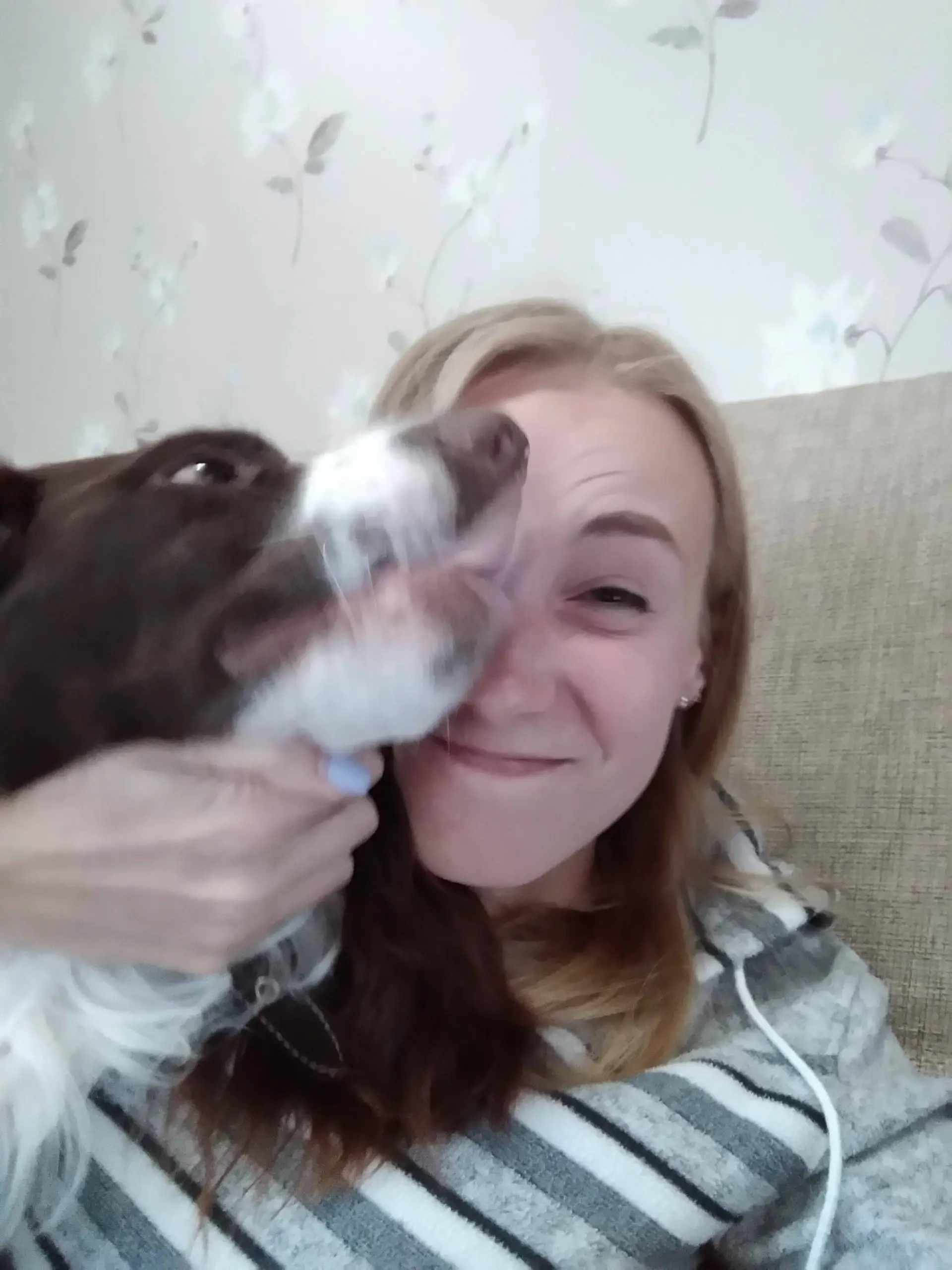
My name is Katie, and I have had different pets at home for as long as I can remember. While I can definitely say I love all animals in general, my heart belongs to cats and dogs. I know you are supposed to choose one or the other, but I could never really decide. I’ve also owned hamsters and fish when I was a kid, and they filled my childhood with very delightful memories.

